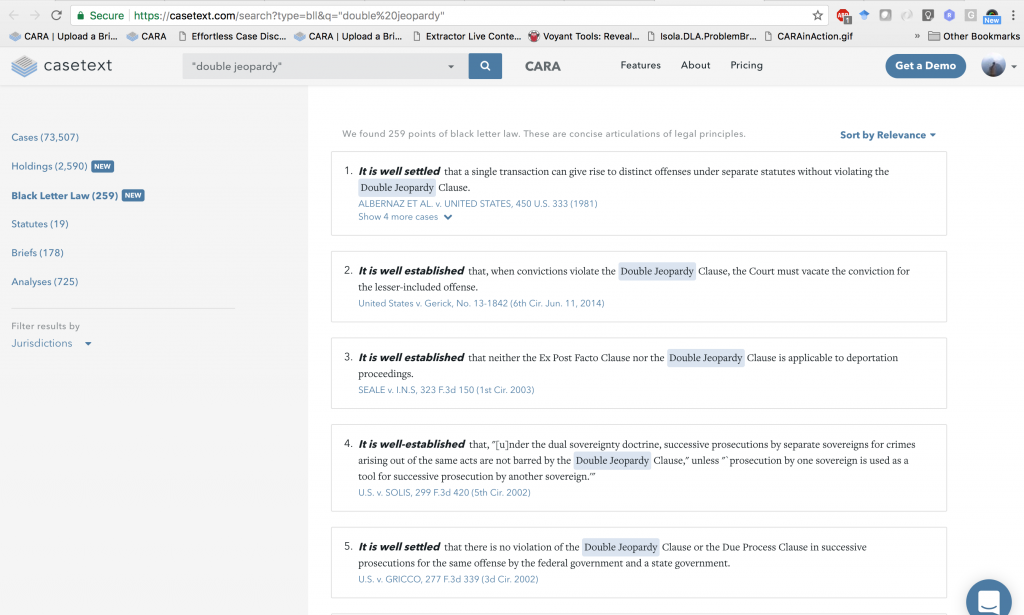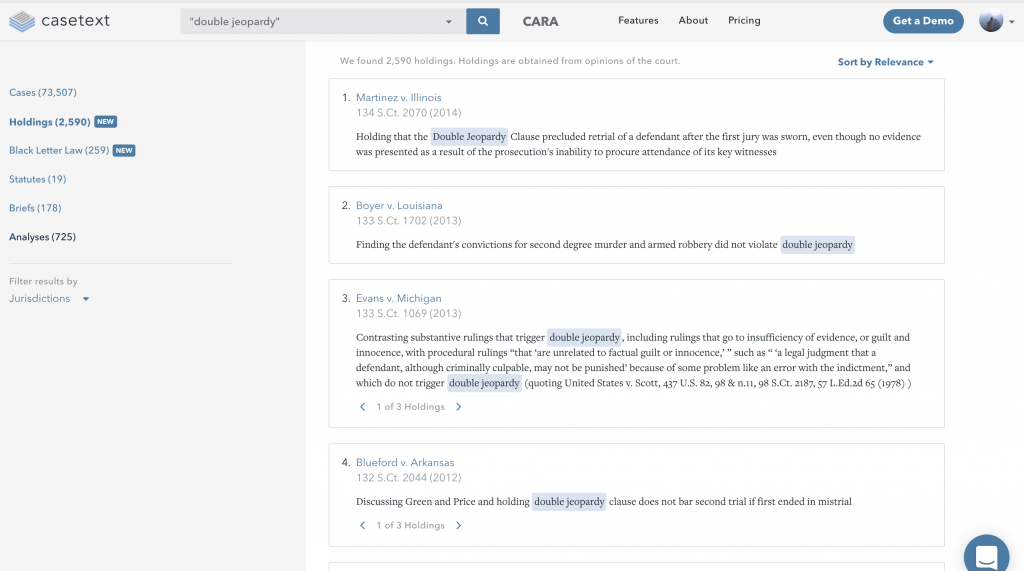Every legal researcher has come across the phrase in a judicial opinion, “It is well settled that …,” or, “It is axiomatic that …” In 2014, I wrote about a prototype legal research website that mined opinions for instances of these phrases and made them searchable as a way of helping researchers find statements of established principles of law.
That website, which was called WellSettled.com, no longer exists, but its creator, Pablo Arredondo, is now chief legal research officer and cofounder of Casetext, which today is launching a much-expanded and enhanced version of that former site in the form of two new research databases, Black Letter Law and Holdings, which are intended to help researchers to quickly hone in on key rulings and common law doctrines.
The Black Letter Law feature is essentially what I described above. Casetext has searched cases for instances of phrases such as “it is well established,” “it is well settled” and “it is axiomatic,” and created a database that so far has over 100,000 of them. A researcher can use these to quickly find principles of black-letter law and the cases that support them.
The Holdings feature is a bit different. It finds the parentheticals that an opinion contains when it cites to a prior case and summarizes the prior case’s holding. These collected references form a database of other courts’ summaries of what a particular case held. Whereas the former WellSettled.com site had some 400,000 of these, Casetext’s new Holdings feature has more than 2.3 million.
This feature creates something akin to a legal treatise, Arredondo says. “What we have here is the entire judiciary of the United States for a century and a half creating concise case summaries for us.”
Lawyers use secondary sources such as treatises to find a quick and concise way to get to primary law, Arredondo says. “This database has the features of a secondary source but pulled from caselaw.”
The Black Letter Law feature is useful in several contexts, Arredondo says. One is when researching an unfamiliar area of law. This feature can help quickly reveal the skeleton of the law and identify the black-letter principles.
Another is in finding precedent that has become so settled that it is hard to find a case that stands for it. With this feature, the researcher can find cases to cite that state that a principle is well settled.
Researchers can access results from both Black Letter Law and Holdings through a standard keyword search on Casetext or via CARA, Casetext’s AI-powered legal research service.
 Robert Ambrogi Blog
Robert Ambrogi Blog
